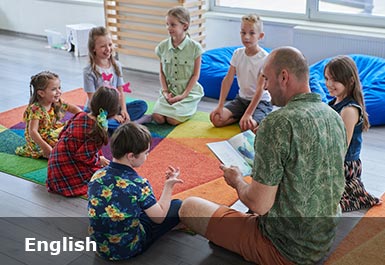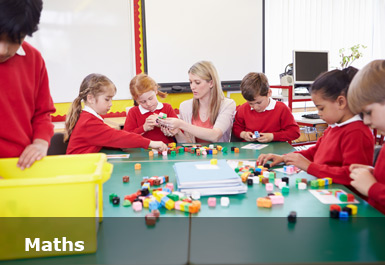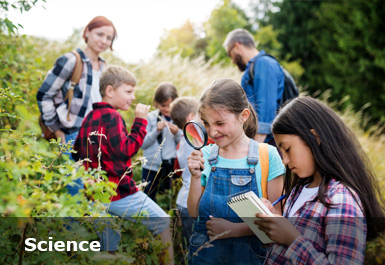
PGCE Early and General Primary Core subjects
 English
English
'It has definitely felt like my English Tutor has gone the extra mile this term to support my developing understanding, which has turned English into a subject that I am excited about teaching rather than afraid of.'
Throughout the English course, we consider how we can plan and teach Literacy lessons which meet the needs of all pupils, including those with English as an Additional Language and those with Special Educational Needs and/ or disabilities.
The course is underpinned by a philosophy that high quality literature for children and high quality writing from children are linked.
As well as considering what is written in various genres (including picture books, novels, poetry, non-fiction texts, digital texts and film), prominence is also given to strategies for enabling children to become more fluent, enthusiastic, discriminating and adaptable readers and to ensuring that all PGCE students are confident and competent in how to teach early reading.
The development and transition of children’s writing from emergent mark making to a fluent style is explored. Practical workshops support investigations into the writing process.
 Maths
Maths
'I loved every maths session. I learnt so much and became so aware of the tiny steps of understanding that underpin broader mathematical awareness.'
Throughout the Maths course PGCE students are helped to use and develop their own subject knowledge and to appreciate the way in which this underpins the mathematical learning of children. Tutors draw on research into the teaching and learning of mathematics as well as on practice in schools.
The Early Primary maths course explores the importance of handling real objects and using strong imaginary contexts before eventually developing abstract mathematical thinking.
PGCE students learn to deconstruct tasks, identifying the individual mathematical skills and concepts required, in order to provide effective teaching and support individual learning.
The General Primary maths course focuses on developing 'deep subject knowledge'; and knowledge of pedagogical approaches or strategies in relation to particular content areas of primary school mathematics e.g. multiplication and division or geometry.
Seminar activities promote the use of teaching and learning approaches such as the use of concrete resources and visual representation as thinking and communication tools, reasoning and problem solving, dialogic teaching, making connections and developing understanding of big mathematical ideas.
 Science
Science
'Outstanding and highly stimulating. Science is about enthusiasm for knowledge and the lectures and seminars were brimming with it.'
A highlight of the year for all PGCE students is the Environment Day which places science firmly within a cross curricular context as PGCE students discover how science activities and a wide range of creative arts - including work with clay, textiles, printing and photography - can be brought together within a study of the natural environment.
The Early Primary science course celebrates children’s natural interest in their world. The course teaches how to support children in developing curiosity about their environments, focusing on areas of knowledge such as 'materials', and ‘living things’. Consideration is given of how to develop children’s science skills and knowledge using age-appropriate pedagogy.
On the General Primary Science course you will combine work in the Faculty with work in schools. The Faculty-based elements of the course comprise 12 lively, interactive sessions designed to build your confidence, knowledge and competence in primary science. Three overarching themes, linked to the Primary PGCE Curriculum, inform all course sessions:
- Understanding teaching and learning in primary science - substantive and disciplinary knowledge, for teachers and pupils
- Planning, assessment and progression in the curriculum
- Enquiry approaches and science for all
Building castles in maths, making shadow puppets in science, going on a bear hunt in English, racing cars made from cereal boxes and pretending to be a clown in dance. There have been so many brilliant moments on the course both on placement and at the Faculty.
